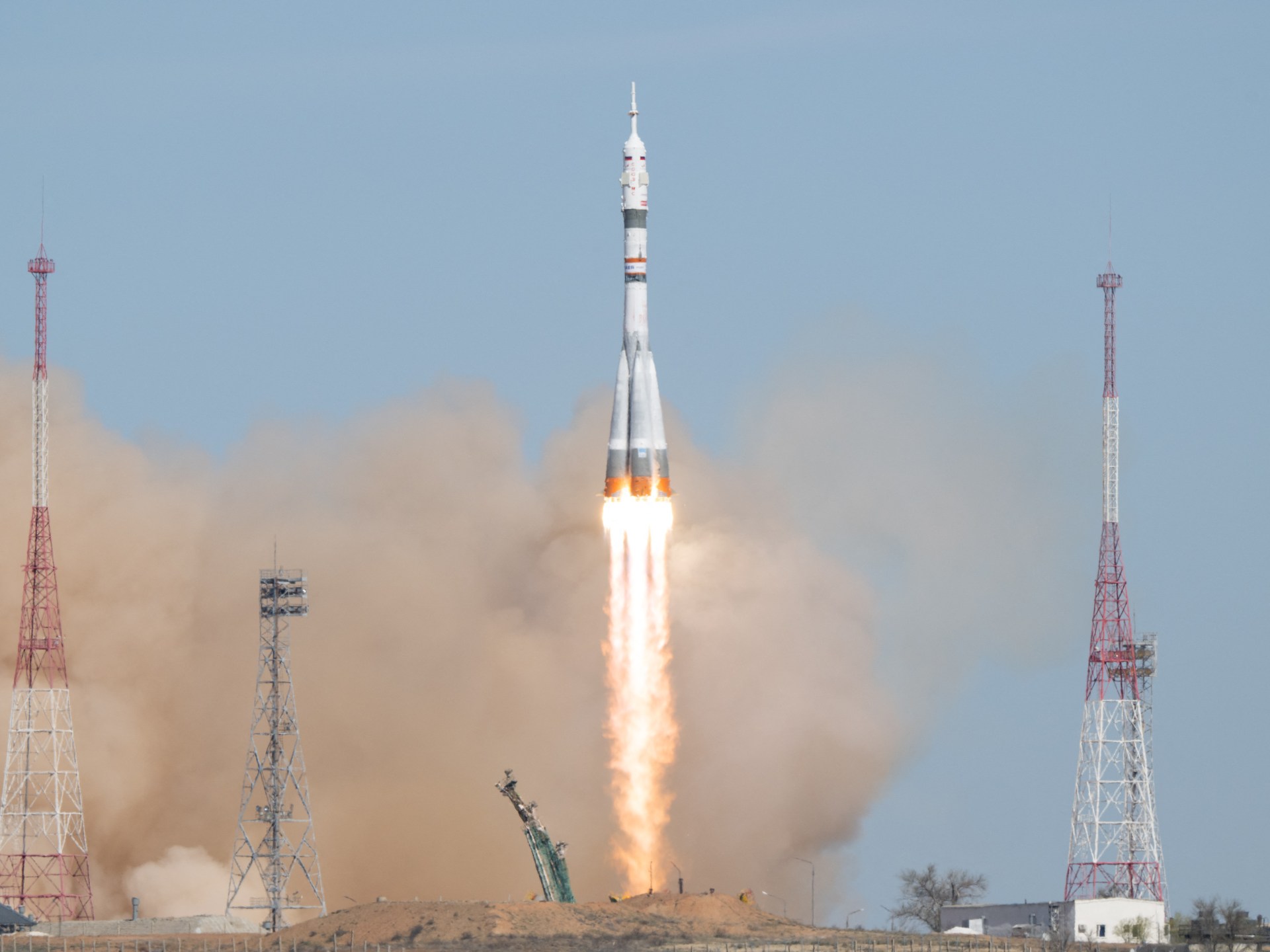The spacecraft with two Russian and one American astronaut took off from the Baikonur Cosmodrome in Kazakhstan
A Russian rocket carrying a crew from the United States and Russia has docked with the International Space Station (ISS).
The Soyuz MS-27 spacecraft lifted off from the Baikonur Cosmodrome in Kazakhstan at 10:47am (05:47 GMT) on Tuesday. Space flight remains a rare avenue of cooperation between the US and Russia, with ties having broken down after Moscow unleashed its war in Ukraine in February 2022.
With NASA’s Jonathan Kim and Russian astronauts Sergei Ryzhikov and Alexei Zubritsky on board, the vessel docked with the ISS some hours later, Russia’s state space corporation Roscosmos said.
The mission of the latest Soyuz launch is to carry out 50 scientific experiments in space, Roscosmos said, before returning to Earth on December 9.
Docking confirmed: the Soyuz MS-27 spacecraft, which launched from Earth just a few hours ago, officially docked to the @Space_Station at 4:57am ET (0857 UTC). Stay tuned as we greet the station’s newest crew members; coverage starts at 7am ET (1100 UTC). pic.twitter.com/mG6bKzcLQl
— NASA (@NASA) April 8, 2025
The Soyuz rocket was decorated to celebrate the 80th anniversary of the end of World War II.
However, despite the continued cooperation in space flight, the US and other Western countries have ceased other partnerships with Roscosmos as part of the slew of sanctions placed on Russia due to the war.
President Vladimir Putin’s investment envoy Kirill Dmitriev, who is trying to spur a reset in US-Russia ties and held talks in Washington last week, said Tuesday’s launch was the latest example of an enduring space exploration relationship which traces its history to 1975.
That was when the first crewed international space mission carried out jointly by the US and the Soviet Union saw an Apollo and a Soyuz dock in space.
That mission, which featured the first international handshake in space, was a symbol of Cold War detente.
“Russian and US cooperation in the space industry continues today,” Dmitriev said, posting a video on his official Telegram channel of the rocket blasting off.
Dmitriev added that Moscow might also supply a small nuclear power plant for a mission to Mars planned by SpaceX CEO Elon Musk.
Russia’s space programme, which for decades has been a source of great pride, has been suffering for years from a chronic lack of funding, corruption scandals and failures.
The Luna-25 probe, the country’s first moon mission in almost 50 years, crashed on the moon after an incident during pre-landing manoeuvres in August 2023.
Moscow has begun expanding its space cooperation with other countries, including China, which remains the only country to land a probe on the dark side of the moon.
With the ISS nearing the end of its service life, Russia has also announced plans to start its own space station. The first two modules are expected to launch in 2027.
